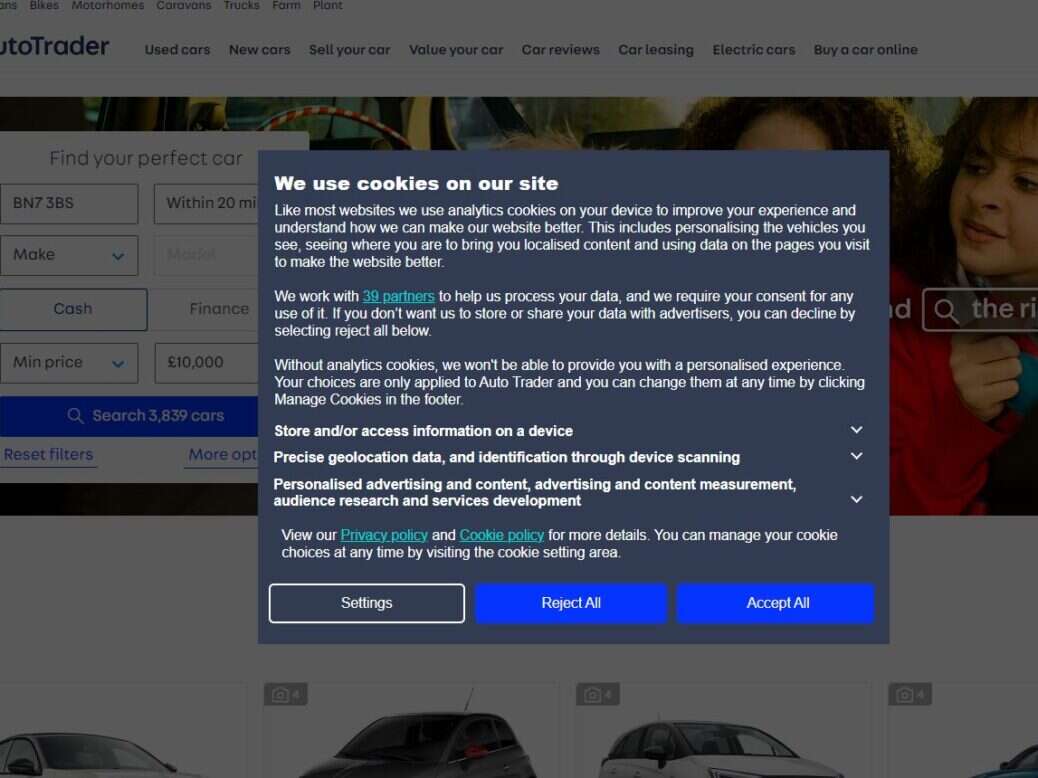
The UK’s information watchdog is considering its regulatory approach to the so-called “consent or pay” model of allowing personalised advertising.
Under “consent or pay” users can either agree to share their personal information for better targeted advertising, or pay to keep their data private.
Asking users for payment counteracts the fact that publishers get a lower yield from non-personalised advertising.
A letter from the Information Commissioner’s Office to the Association of Online Publishers and Internet Advertising Bureau UK has confirmed that UK publishers are considering introducing this model.
The ICO letter said: “We expect all websites using cookies or similar technologies to serve personalised ads to give people a fair choice over whether they consent to the use of such technologies. The easiest way to give users a fair choice is to ensure that users can reject non-essential advertising cookies as easily as they can accept them.
“We understand however that some of your members are considering so-called ‘consent or pay’ models and wish to understand our regulatory position to guide their investment decisions.”
Publishers considering the “consent or pay” model believe it could help counteract the effect of the ICO’s crackdown requiring websites to display a “reject all cookies” button as prominently as the “accept all” option.
DMG Media has told Parliament that 93% of Mail Online users hit “accept all” when asked for their cookie preference and the experience of those who trialled an equally prominent “reject all” button showed consent rate dropped to 50%.
In Germany around 80% of newsbrands now require either full consent to third-party advertising cookies or a paid subscription. At German tabloid Bild, although there is a normal digital subscription called Bildplus, it separately offers Bild Pur (pure) which allows users to pay £3.99 per month to opt out of personalised advertising and tracking of their online behaviour.
On Wednesday the ICO opened a call for views on its regulatory approach to the “consent or pay” model as part of a commitment to “providing the online advertising industry with clarity on ways in which it can use advertising cookies in compliance with data protection law”.
The call for views set out the ICO’s “emerging thinking” about the practice but added: “It should not be interpreted as confirmation that such an approach is legally compliant.”
The ICO said consent for personalised advertising must be “freely given”.
“In principle, data protection law does not prohibit business models that involve ‘consent or pay’,” it said.
“However, any organisation considering such a model must be careful to ensure that consent to processing of personal information for personalised advertising has been freely given and is fully informed, as well as capable of being withdrawn without detriment.”
The ICO added that consent is unlikely to be deemed freely given “when people have little or no choice about whether to use a service or not, which could be the case when they are accessing a public service or the service provider has a position of market power”.
Equivalence is also a factor: “Are the ad-funded service and the paid-for service basically the same? For example, if a service provider offers a choice between personalised ads and a ‘premium’ ad-free service that bundles lots of other additional extras together, then this wouldn’t be the case.”
It also said any fee should be “appropriate” and not “unreasonably high”.
“Fees should be set so as to provide people with a realistic choice between the options, with the provider capable of providing objective justification of the appropriateness of the level.”
The call for views closes on 17 April.
Email pged@pressgazette.co.uk to point out mistakes, provide story tips or send in a letter for publication on our "Letters Page" blog
